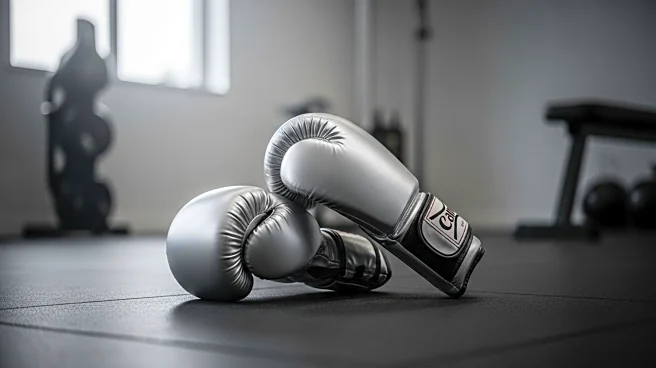What's Happening?
Joel Alvarez, a UFC fighter from Spain, has transitioned from lightweight to welterweight due to the challenges associated with weight cutting. Alvarez, who previously struggled to make the 156-pound limit, found the process detrimental to his performance and ability to fight frequently. By moving to the 170-pound welterweight class, Alvarez aims to fight more often and improve his performance. He expressed that the change has allowed him to take fights on short notice and has rekindled his passion for the sport. Alvarez's decision reflects a broader trend among fighters seeking to optimize their health and career longevity by choosing weight classes that better suit their physical capabilities.
Why It's Important?
Alvarez's move to welterweight is significant as it highlights the ongoing issue of weight cutting in combat sports, which can impact fighter health and performance. His decision may influence other fighters facing similar challenges, potentially leading to a shift in how athletes approach weight management. The change could also affect the competitive landscape of the welterweight division, as Alvarez's improved performance may pose new challenges to existing contenders. This development underscores the importance of athlete welfare and the need for regulatory bodies to address weight-cutting practices.
What's Next?
Alvarez's transition to welterweight opens up new opportunities for matchups within the division, potentially leading to high-stakes fights that could elevate his standing in the UFC. As he adapts to the new weight class, Alvarez will likely focus on building his reputation and climbing the ranks. The UFC may consider scheduling more frequent fights for Alvarez, given his readiness to compete more often. Stakeholders, including coaches and promoters, will be watching Alvarez's performance closely to assess his impact on the welterweight division.
Beyond the Headlines
Alvarez's decision to change weight classes highlights the ethical considerations surrounding weight cutting, including the balance between competitive advantage and athlete health. It also reflects cultural shifts within combat sports, where fighters are increasingly prioritizing long-term health over short-term gains. This trend may lead to broader discussions about the role of weight management in sports and the potential for policy changes to ensure athlete safety.









